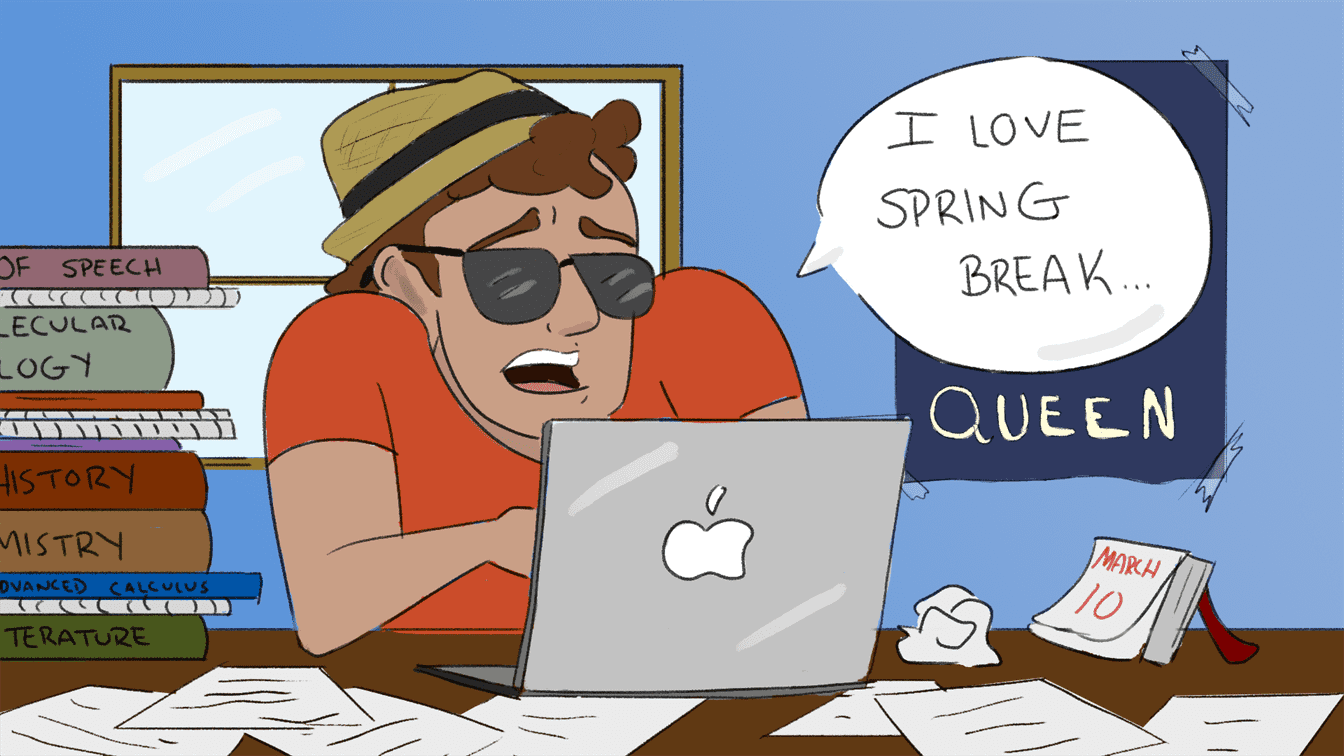Spring break is the one week every spring semester that classes come to a halt and students and professors alike have a week to sit back, relax and enjoy some time for themselves.
Unfortunately, for many college students, this idea of a week off is merely that, an idea.
Instead, spring break is not a break at all, just a small amount of time allotted to get caught up on whatever has been piling up on the to-do list, and for most college students, that means trying to make some money, making up overdue assignments and searching for summer jobs. In some cases, students have assignments due over spring break.
The fantasy of college spring break is something that was once an easily attainable reality, but has since become lost. Hollywood movies depict spring break as a time for college students and their friends to fly to a warm weather area filled with sun, booze and lax sexual politics. In other words, a stereotypical college paradise.
Parents of today’s college students can tell tales of a wild weekend spent in Fort Lauderdale, Florida, or a few days of gleeful chaos in Cancun, Mexico.
Most college students of today will only be able to tell their future children spring break stories of working minimum wage jobs and applying to summer internships.
With the cost of college tuition and room and board at the highest they have ever been, spring break is a seldom opportunity to work long hours and build up your bank account. This work may not pay off your student loans, but it will at least provide some spending money to get through the end of the semester.
Regardless, the week intended for relaxation is spent laboring toward short term financial security.
Students with sport or club commitments do not have those commitments put on hold. For most spring sports teams, the week off from school is used as an opportunity to extend and intensify training, squandering any hope to put together some cash.
Therefore, their intended “break” can be the most physically taxing of the entire semester, the benefits excluding a higher grade point average or bank account balance.
Any week off from most full-time jobs can be spent focusing on things that are not usually given the opportunity to devote an extended amount of time to. This includes professors and other university faculty, and should apply to students as well.
Most courses at Montclair State University meet for a total of two hours and 30 minutes each week for a total of 15 weeks. The one week of empty classrooms being filled with anything other than personal business is unnecessary and unfair.
With the original intention of spring break having lost its form to most college students, it is best to observe spring break as a time to just hit the reset button and prepare oneself for upcoming final exams, projects and possibly new and exciting summer jobs.
For students that find themselves without a break within the week considered to be one, they should still find time for self-care even if it’s a movie in bed after a nine-to-five shift.



